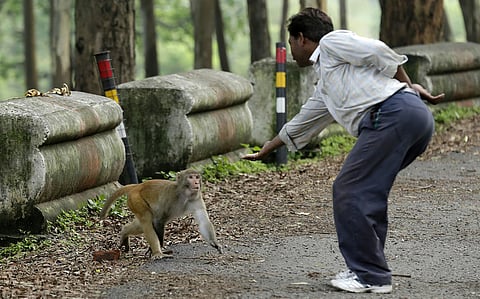
Rhesus monkeys is a species of macaque common to South Asia. It is, in fact, sacred to Hindus as a form of Hanuman. People in India and other countries in the region often feed these simians either due to this reason or out of pity.
However, this behavior is dangerous. Rhesus macaques are primarily herbivorous, with a diet that includes fruits, leaves, seeds, roots, and flowers. In forests, these monkeys spend about 14 hours in search of food.
Rhesus macaques are, however, quite adaptable. Those living near human settlements expand their diets to include human-provided foods and trash.
According to scientists, feeding rhesus monkeys by humans should be discouraged because it leads to increased aggression, dependency, and a decline in natural foraging instincts, causing them to lose their fear of people and seek out human food sources. This human-provided food can also cause health issues and alter their behaviour, leading to more human-animal conflict.